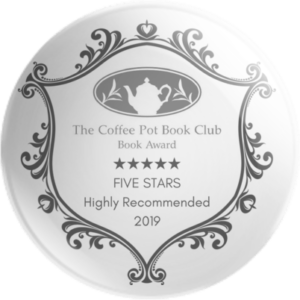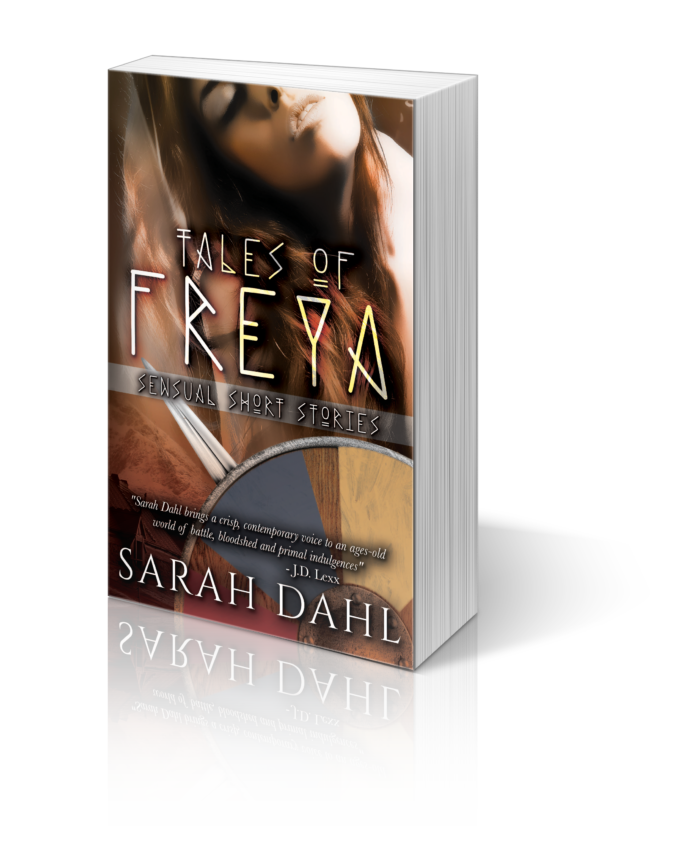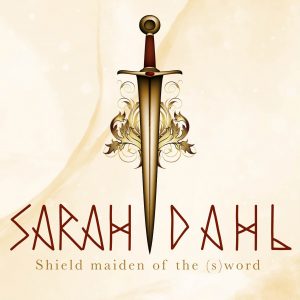On Planning and Routines – Tips for Writers
 Every author will tell you that she works best with the help of certain, more or less fixed, routines. This is about actually sitting down to write, or edit, or plot a story. Several authors have given great insight,
Every author will tell you that she works best with the help of certain, more or less fixed, routines. This is about actually sitting down to write, or edit, or plot a story. Several authors have given great insight,
- either into what they personally do to “get in the mood” for writing. With experience, all authors learn what works best for them to get — or sometimes force — themselves into “work mode”,
- or into what generally seems to be a good start to get your hands onto that keyboard and the brain focussed — some will even work better with the old-fashioned notebook and pen.
So I’ll wrap up the most convincing (for me) tools and measures for you to pick from — or toss aside — just as long as you develop something that is useful for you:
MINDSET: you have to see your writing, editing, planning and plotting as YOUR WORK, no matter what people around you think, say or just hint at with a raised brow. Even if you are NOT currently published, which also those authors sometimes are that have had a book deal once or twice — it is what you want to do, it will maybe one day make you some money, and until that: it has to be your full-hearted passion that you pursue daily, at a set time and place. The latter is necessary to get your brain into the “work mode”. Shut out any distractions, and for the time you set aside, let nothing interfere with your work. Sometimes I start slow, and catch myself idling with other stuff, but see it like this:
Authors are artists. We live and breathe the art of writing and all that comes with that package (editing, drafting, researching, marketing, blogging etc.). Like a painter who only wants to paint, we write what we need and want to create, and whether our art is making us any money is secondary. It has to be. Otherwise you’d be sidetracked into unhealthy — for your stories, i.e. your art — pursuits, such as writing what you think will please, will sell, and has been there a thousand times before.
For me, since I told myself and those around me that I am an artist just like a painter, sculptor, or dancer — and yes, thank you, I know that it is a risky and uncertain profession. The art of writing always has to be central as such. That way, I am so much more confident about what I do. I am more focussed on what I want to achieve, proud to tell others that this is my profession, be it rewarded monetarily or not AT THIS MOMENT. I sit down to work at my desk at a set time just like any other jobholder TO GET THE WORK DONE.
I strongly advise you to do the same. Think of yourself as an artist, and tell others so. There is rarely that one great book deal on the horizon which will erase all financial issues. Once one book is out, the next ones will have to follow. It is a normal, day-to-day job.
And there you are: in order to be able to work on a daily basis like the author you always dreamed of being, you first have to convince yourself — and then others — that this is your job. Not just a hobby. And aren’t we lucky to be doing exactly this job? To me it feels like I have to pinch myself from time to time, that I am actually really sitting at home — or in a nice cafè — to CREATE!
TIME AND PLACE: Once you got your mindset sorted out, and are passionate to turn your life around, it gets down to the basics of time, workplace, planning and goals.
Most authors agree that a fixed daily working time that is set aside for writing is essential to keep going. Listen to Stephen King and hundreds of less-selling authors, who say that in order to get things done, you need a set time, no excuses, and no distractions. You’ll have to find out for yourself which time(s) that can or have to be, depending on your own creative juices and the external restraints we all have. Especially mothers of small children. There is always “something”, but we have to learn to live with it without frustration (I can get so upset when my writing time is hampered by outside forces) and just re-organise. Find out your best writing time, the most comfortable place to be doing it in, and stick to it. Minor things like a tidy desk, a cup of coffee, lots of sticky notes and several notepads at hand improve the output for me.
Then there come the ROUTINES: This is very personal and protects you and your time from distractions. It can be anything that makes YOU comfortable and gets you focussed. It is like a 3-2-1 countdown for your brain to know “working time”!
What I need varies slightly, depending on what I plan to do, whether it is editing, drafting, research or actual writing. For creativeness, I need a nice warm drink, preferably coffee from our own machine. A cold drink will do for editing or blogging. I need the desk to look sorted, which doesn’t mean empty, but the piles and notes have to make sense at one glance. I’ll push aside all the other piles and just focus on what I intend to be working on. I need a little snack — chewing helps to concentrate and eases stress or pressure — depending on the time of day: during long mornings it is fruit slices or yoghurt, and during long evenings it has to be something chocolatey and/or cookie-like. I dump that stuff in my coffee, which is why I need a warm drink then. I also need warm feet. I can’t focus with cold feet, so there is my beloved, worn-out pair of … well, slippers is the wrong word, it sounds as if there was a shape to them. I call them feet muffs. Misshapen, fluffy and thick shoe-socks that I cannot really walk in. I can only sit with them on, so they keep me from fleeing from unloved work, and therefore feet-muffs increase my productivity … 😉
Once sitting on that stool, most authors agree that a certain degree of PLANNING is helpful. Only start to write when you have a rough idea of what it will be, and how to get there. Outline/draft at whatever length is necessary before you start to type. I even scribble goals on sticky notes (saying “blog entry”, “edit XY”, “research Z”) in order to keep me focussed during that limited time I have, and not fall into the bad habit of hanging around on the net without getting anywhere. And for the actual story writing: it is very helpful (but not to everyone’s taste) to know what you want to write before you start.
In addition to some rough planning, set yourself achievable goals.
- While creating, this can be a realistic, daily word count. Like, tried and tested, 1,000 words. It doesn’t sound intimidating, and as a professional you know that it is achieved quite quickly. I am NOT talking about 1,000 perfect words. Just get yourself writing. Or if this doesn’t suit you, you can agree with yourself or a fellow writing buddy (this actually works best for me — thank you, Elaine, for always pushing me) to work for exactly XY hours and then evaluate. The longer you’ll sit, the faster and easier the words will come. And you can always go back and change your creative spill into something usable. But until that: practise reaching your realistic goal. Get yourself started. SIT AND TYPE.
- While editing, this can be a realistic amount of scenes, chapters, or pages. Or if that doesn’t suit you, you can agree with yourself or a fellow writing buddy (thanks again, Elaine) to work for exactly XY hours and then evaluate. You’ll need to practise fluent editing to see how much you can do in one sitting without draining yourself. This needs more concentration — yes, I am serious! — than “just” creating. Think about it.
- While researching, I also find that I get done more — meaning I have results afterwards that I can actually use — when I first jot down what I am looking for. To keep me focussed. It is too easy to get sidetracked during research, and it can be the most time-consuming job of all, if you don’t force yourself back towards where you where heading. Let there be a goal, something you AIM to find out every time you open the browser. Yes, sometimes jumping around on the net and letting yourself be inspired can be blissful, but does it serve your purpose? If you need a little distraction or are brainstorming, alright. But no procrastination allowed! Be hard on yourself. I often ask myself while researching, “would this be part of my research if I was studying the topic? Does it still belong into my pile of research notes?” If yes, fine. If no, get back on track.
Last, but not least, I recommend that self-protection is vital. Protect your time and work from outside forces. Those can be anything, from screaming kids, moaning husband, social media (yes, I do ignore my phone and facebook while I work), phone calls … you name it. Hard as it seems at the beginning, make it part of your routine to shut out those distractions. They lead you nowhere, and at the worst endanger your work goals. I sound like my own mother, or favourite teacher, but yes: Be clear about your working times and keep the door shut. I even stick a stop sign on my door to remind the children, and lock it behind me. I even have earplugs for certain occasions.
Of course, there can be unexpected emergencies that screw up your goals, but you shouldn’t let those upset you. Tend to whatever is imminently necessary, then promise yourself to return to your realistic goal (those 1,000 words worth of writing, or 6 pages of editing, that blog entry, or whatever) as soon as possible. You CAN add another 1,000 words the next day, or split it into two portions at a time. Just make sure that you don’t feel too disappointed by what you didn’t manage, and try again next time.
And now: you think about all this, let me know what works, or sounds as if it could work for you, and OFF YOU GO.
SIT DOWN. FOCUS. CREATE!
I’d like to hear how you approach your writing projects! Let me know in the comments below and share your experiences!
If you would like to learn more about how other authors work, check out my Useful Links page here.




Comments (0)